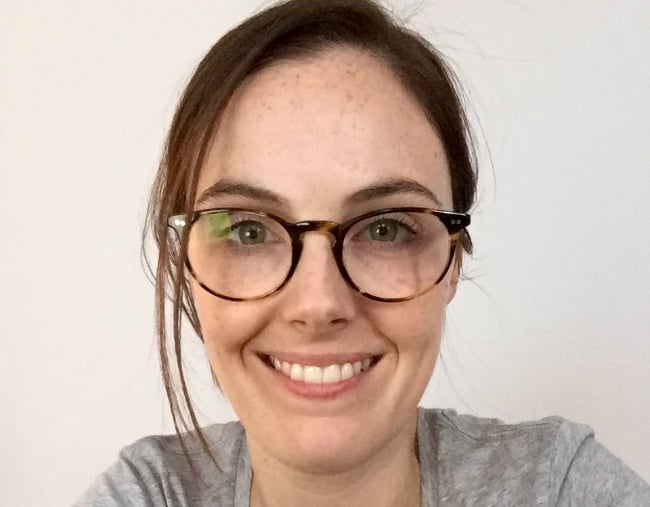
The day I realised I had a prolapse, I had a sinking feeling. As women who have a prolapse would know, the feeling was literal. I felt like everything in my body was, well, sinking down to where it didn’t belong.
I did what any self-respecting woman with an uncertain health concern would do: I turned to Doctor Google.
There it was in black and white. A word to describe the feeling: Prolapse.
I made an appointment with a women’s health physio who, when asking her many and varied but all intensely personal questions (is there no end to the indignity of having a baby?), initially buoyed me. I didn’t have many of the awful-sounding symptoms. In fact, other than the sinking feeling, which she called ‘dragging’, I had none. Maybe I didn’t have a prolapse after all! But I did. Bladder and bowel. Mild, but still there. Oh, and a nice friendly bit of nerve damage to go along with it.
I was devastated.
I hadn’t had difficulty losing my baby weight. My friends were being very kind and commenting on how well and how quickly I had ‘recovered’ after having my baby. But on the inside, I felt as though my body was ruined forever. I felt as though I would be uncomfortable for the rest of my life. I’ll admit it: at times, I would look at my newborn son and think, “Are you worth it?”
When I was pregnant and in the weeks following the birth, I had medical advice from a GP, two midwives, a student midwife, an obstetrician and a gynaecologist. I also did an extra birth course. Not one person mentioned the word prolapse to me.

Top Comments
After 3 vaginal deliveries, I was not only urinary incontinent, but my bowel wall was actually protruding out of my vagina, I had to push it back in regularly. I was unable to exercise as every time I bent down it popped out!! It gradually became worse and worse so I had surgery to tighten every thing up and had a hysterectomy to remove my falling uterus. Best thing I every did!! Luckily for me everything went really well!! I can now very carefully exercise, no more periods and no more pushing my little friend back into it's hidie hole!! And as my Gynaecologist told me after surgery I now have a brand new " Designer Vagina " that I told my husband will now stay shiny and new!!. As much as it was a challenging journey, I have 3 wonderful children and my body was the price to pay. Yes some advice early on would have been helpful but I think everyones body handles things differently and we all need to be advocates for our own health and well being. DO those pelvic floor muscle exercises and take it easy after child birth getting back into the right exercises.
It's all part of the over-riding ''vaginal birth at literally any cost'' (NOT financial, oh dear no, it's el cheapo by comparison to c-section, never forget this) idea where we're relentlessly told how we can ACHIEVE this, our bodies were MADE for this, there's no NEED for all these interventions...
But they gloss quite quickly over the fact that childbirth is the riskiest time of a woman's life. It just is. In evolutionary terms, quite a lot of us are ''meant'' to die at or just after, quite a few of the babies are too. Thus delivering in perfect health with no saggy vag and no problems at all are not even remotely on ''nature's'' agenda in the way we might like. You are just another example of ''it's our policy to *encourage* natural birth by militant inculcation from the word go'' being very damaging and pointless.
It's very fashionable to just do it at home with a candle, a blow up pool and a midwife and some clary sage, but the terrible injuries following are rarely discussed before, with detailed photos because ''it's negative''. Instead they bellow about how c-section is A VERY SERIOUS OPERATION THAT CAN KILL YOU. Funny, that.
After speaking to a woman who was a physician and had delivered babies, and hearing she subsequently chose to have an elective c-section with both of her children, I figured there were likely a few things about birth the rest of us weren't being told and I'd best follow her lead - good decision!
Seems to be a common thread in women's health - like when birth control pills are handed over with no mention they will likely lead to weight gain, depression and lack of motivation.